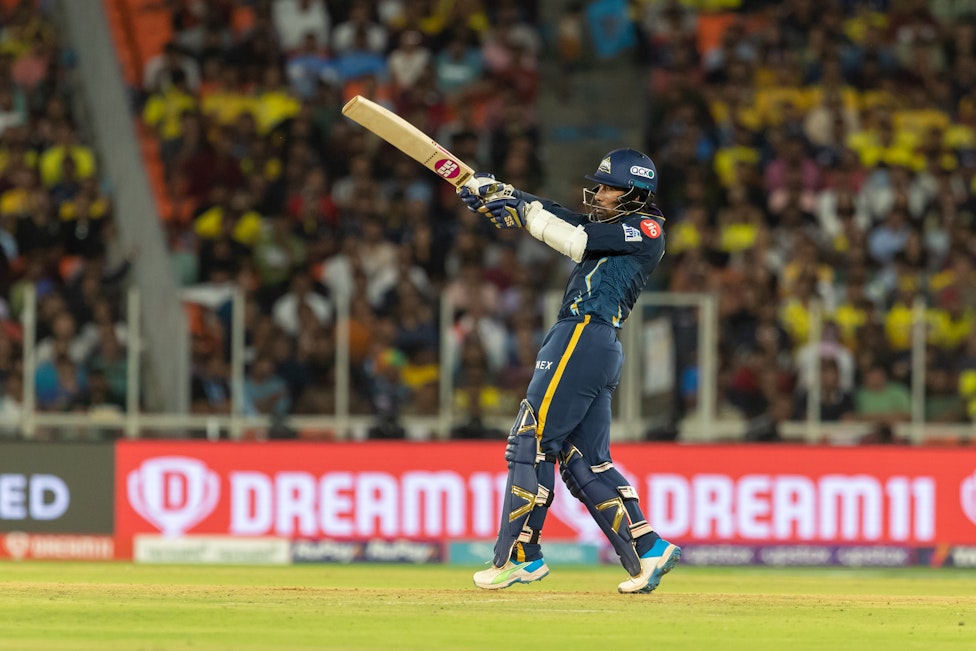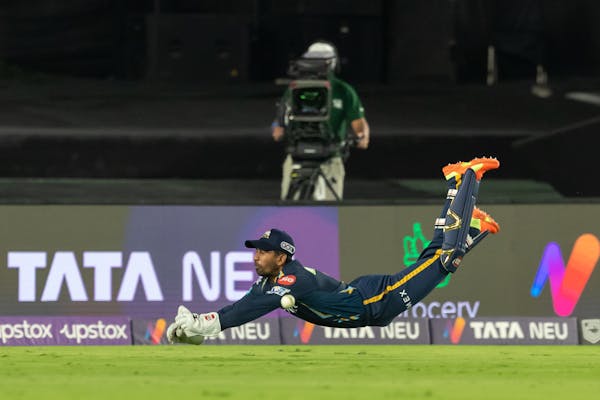 OPINION
OPINION13 years ago, Michael Lumb finished England’s T20 World Cup-winning campaign with 137 runs in seven innings, averaging 19.57. He had no fifty-plus scores to his name and ended the competition with a high score of 33.
Yet, Lumb was as vital to England’s triumph as anybody else.
Debuting in the competition as a basher, Lumb was given a particular role at the top of the order. His job? To swing at everything, take the attack to the bowlers from the get-go and inject momentum into the innings.
No kidding, that was all England expected, and wanted him to do. None of that anchoring, ‘please cash in if you’re in’ nonsense.
Lumb delivered, spectacularly: he faced an average of just 13.85 balls per innings in the entire tournament, but got the team off to a flyer in all but two innings he batted, his scores in the other five reading 28 (18), 14 (11), 25 (13), 32 (21) and 33 (26).
These knocks above did not bolster his numbers, nor did they even get talked about in post-match discussions.
But none of it mattered: ultimately, they did something very important — they served the team’s needs to perfection.
Lumb has been long-retired and, really, is not someone you expect to be talking about on the opening day of an IPL season.
But 13 years on, it is hard not to see the similarities between the thankless job he did back in the day for England, and what Wriddhiman Saha’s been doing in the IPL for a while now.
On Friday at the Narendra Modi Stadium in Ahmedabad, it was Shubman Gill (63), Rashid Khan (2/26 and 10* off three) and Alzarri Joseph (2/33) who received all the plaudits for the Titans’ victory.
Yet Saha’s 25 off 16 at the top of the order, despite not standing out in the scorecard, played as big a hand in Gujarat starting off their title defence on a winning note.
This, really, has been the story of several Saha knocks across the past five IPL seasons.
***
It wasn’t until the second half of the IPL 2020 season that Saha’s true potential as a utility powerplay basher started getting wide recognition.
There, replacing Jonny Bairstow at the top of the order, Saha smashed 87 off 45 versus Delhi in his first match of the season before following it up with scores of 39 off 32 (vs RCB) and 58* off 45 (vs MI) on two extremely sluggish Sharjah surfaces. The manner in which he got those runs — flaying the bowlers, paying no heed to reputation — made the world take notice.
The big scores — 60s and 70s and 80s — were what brought the attention towards Saha, but here’s the thing: he’d impacted games positively even in the season before. Except not many realized the same, for he was Lumb-ing his way in the side.
On the surface, 86 runs in five innings, an average of 17.2 and a high score of 28 — no matter how high the strike rate is — makes a good case for being a ‘terrible’ season.
Except it wasn’t.
Of the five times Saha batted in IPL 2019, three of his knocks read 28 (13), 25 (15) and 20 (11). Only one of the three led to an SRH win but fundamentally, Saha had done what the team had asked of him.
***
T20 as a format has tactically evolved to a level that individuals executing niche roles — no matter how ‘odd’ a particular role might look — have become a fundamental part of success for teams.
In that sense, regardless of his ceiling as a batter, Saha’s ability to maximize his strengths and ultimately execute his role of being a momentum-injector at the top of the order has made him the ideal candidate in the eyes of the Gujarat management.
It wasn’t always this way.
Wade started the 2022 season as GT’s #1 wicket-keeper — and rightly so, following a stinker of 2021 for Saha in which he averaged 14.5 and struck at 93.6 — and you did, at one point, wonder if it was the end of the road in the IPL for Saha, considering he was 37 and wasn’t getting any younger.
Saha, though, like he’s always done in this competition, bounced back after being handed a lifeline midway through the season. In his third match of the campaign, he smashed a jaw-dropping 38-ball 68 against the Sunrisers to make the wicket-keeper’s (and opener’s) slot his own, post which he never looked back.
He would end the season with 317 runs at an average of 31.7 and a SR of 122.4 and while he did Lumb it every now and then, he also showcased the other side of his batting, this time on a consistent basis, smashing three fifties in his last nine innings.
It is what instilled trust in the GT management to start with Saha this season — though there were clamors for him to be dropped, on the basis of his age and ceiling.
Following his game-changing cameo on Friday which not only put Gujarat on the front foot in the chase but deflated the Super Kings, it would be fair to say that the GT management would have been pleased to have stuck with Saha, not giving in to the temptation of trying out the shiny new toys.
But maybe they’d have felt the same way even if Saha had flopped with the bat — for that was how invincible he was with the gloves as he took two game-turning catches that played a huge role in shaping the direction of the contest.

But then again we’re talking about Wriddhiman Saha, someone who is in the conversation of being the best pure gloveman this century.
There was perhaps a slight bit of fortune in the Moeen catch — it missed his gloves entirely, but he improvised and held on — but the Stokes grab was a true work of art. You take those only if you’re lucky, or if you belong to the top 1%. There is little question as to which category Saha belongs to.
Teams, in modern-day T20 cricket, in general, have (more or less) stopped giving a toss about the competency of those taking the gloves but there Saha was, on Friday, showing the value that a world-class gloveman can add. He spills that, CSK go on to add the 20-30 runs both Dhoni and Moeen felt they missed.
***
After plenty of thought, we figured that the meme template below, from infinity war, sort of fits Saha perfectly.
Fame is a treasure he knows he can realistically never possess, but he guides others to it like nobody else does.
Rashid Khan owes Saha one, but he’s not the only one.